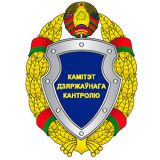Schmidt & Schmidt offers you a qualified Hague apostille service for your public documents issued in North, South and Central America in accordance with the Hague Convention Abolishing the Requirement of Legalization for Foreign Public Documents as well as the consular legalization of your documents issued in the states that have not yet acceded to the Convention.
The apostille is a stamp of a rectangular shape. The heading "Apostille (Convention de la Haye du 5 octobre 1961)" written in French is a necessary requirement for the apostille's validity. The Hague apostille confirms the authenticity of the signature, the position in which the signer has acted, and the authenticity of the seal or stamp with which the document is attested. Each apostille is registered and contains the issuance date and a unique number. In each country the apostille is issued by competent authorities designated for each document type.
The apostille has to be obtained in the country that has issued your document. You can find the detailed information about the country-specific requirements for the apostillization in the country information sections.
Almost all countries of the Americas are the members of the 1961 Apostille Convention. For non-members of the Convention (ex. Canada), public documents are subject to the consular legalization. This procedure implies the certification of the document's validity first, by the corresponding ministry, then by the Ministry of Foreign Affairs, and lastly, by the consulate of the document's state of destination. The document will be valid exclusively in the country whose consulate has legalized it.
Country information
South America – MERCOSUR
MERCOSUR (Southern Common Market) is a regional economic community that promotes the free movement of people, goods, and services among its member states. As part of the integration process, several multilateral and bilateral agreements have been concluded to simplify the exchange of public documents.
Within the MERCOSUR area, specific agreements are in place to facilitate the cross-border use of public documents. These agreements partially replace the Hague Apostille or eliminate the need for consular legalization altogether.
No legalization within the MERCOSUR area
According to Decision No. 03/02 of the Common Market Council (CMC), public documents issued by authorities of one MERCOSUR member state are valid in the other member states without requiring an apostille or consular legalization.
Requirements:
- The document must be issued by a recognized government authority.
- The original signature and seal must be present.
- If the language differs from that of the receiving country, a certified or sworn translation may be required.
No translation in migration procedures
Under Decision No. 44/00 of the CMC, administrative documents used in the context of migration procedures do not require translation, provided there is no doubt about their content.
Example: An Argentine birth certificate does not need to be legalized or translated for a Brazilian residence application.
These special regulations within the MERCOSUR region demonstrate how regional cooperation can significantly reduce the administrative burden associated with the use of public documents. However, it remains essential to consider the applicable national rules in each case—especially when dealing with bilateral agreements or specific regulations of individual states such as Brazil.







































